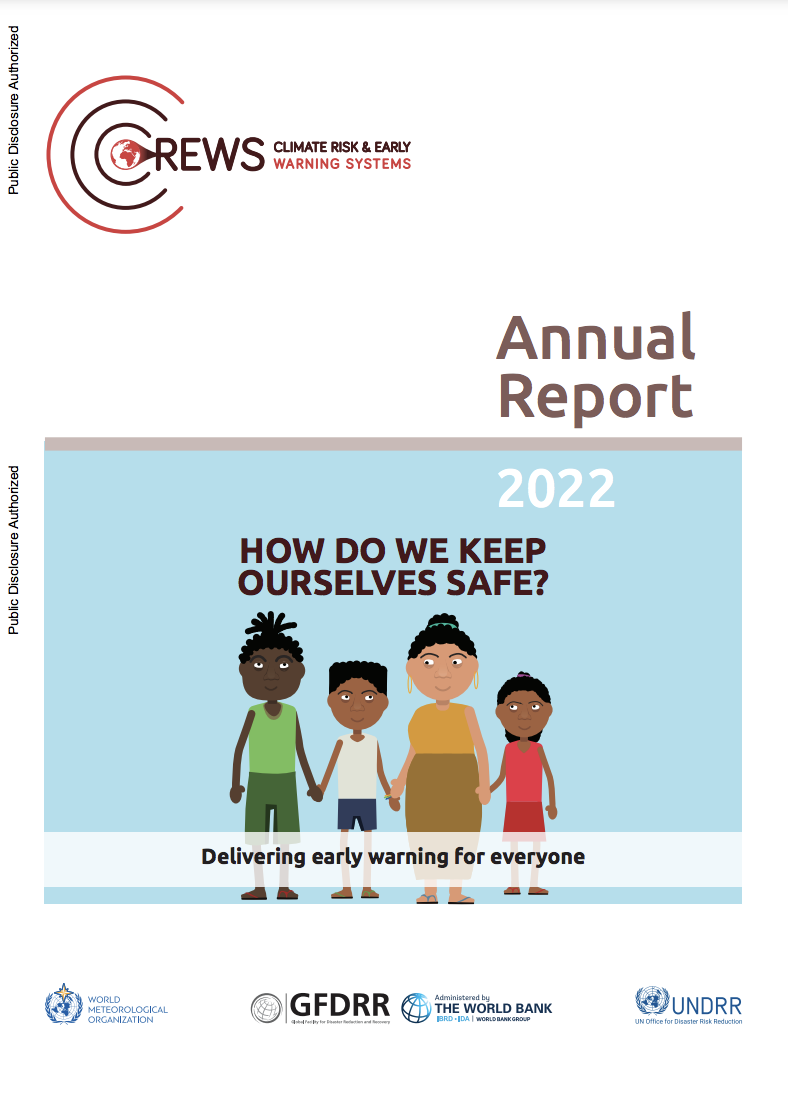2022 was a year when Climate Risk and Early Warning Systems (CREWS) relevance and remit came into sharp focus. The UN Secretary General’s Early Warnings for All initiative to ensure every country has an early warning system by 2027 framed the impetus to CREWS’ work – and an expansion in its support to Least Developed Countries (LDCs) and Small Island Developing States (SIDS). Three new national and regional projects launched during the year – Malawi, Central Africa, and the Greater Horn of Africa – meant 18 such CREWS funded projects in 2022. Additional funding for CREWS Caribbean initiated critical data work in some countries to better inform disaster risk and response management, while a new project was approved for East Africa. In the pipeline, another 19 national, regional, and global projects await funding. Although COVID-19 restrictions gradually lifted, their impact were still being felt in some established CREWS projects. Conflict, instability, and sanctions continued to impede activities to varying degrees in Afghanistan, Haiti, and Mali, and various projects extended into 2023.
Climate Risk and Early Warning Systems (CREWS) Annual Report 2022 - How do We Keep Ourselves Safe?
Delivering Early Warning for Everyone
June 23, 2023

